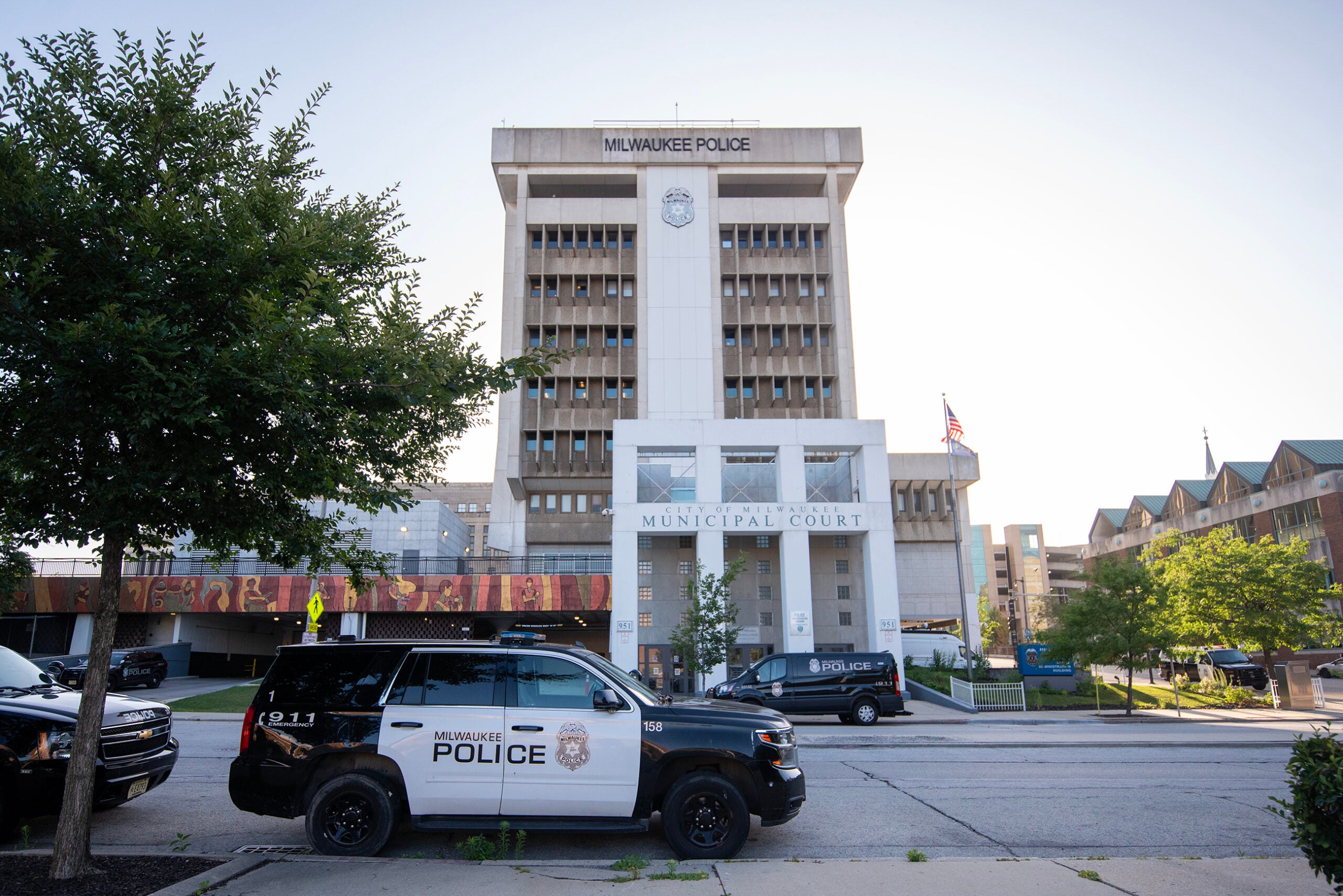Hundreds of firefighter and police officer positions could be cut and several libraries and fire stations forced to close in Milwaukee in an attempt to close an estimated budget gap of $156 million next year.
A recent Wisconsin Policy Forum report pointed to an upcoming “day of reckoning” for Milwaukee’s finances as the combination of declining state aid, rising pension obligations and local revenue limits is forcing city leaders to make tough budget decisions.
On Monday, Milwaukee’s steering and rules committee heard from leaders in the police, fire and library departments about how hypothetical 10, 20 and 25 percent cuts to their budgets would impact the services they provide for residents of the state’s largest city. Those three departments were selected for the budget exercise because they’re primarily funded by the tax levy, according to Milwaukee’s Budget Director Nik Kovac.
News with a little more humanity
WPR’s “Wisconsin Today” newsletter keeps you connected to the state you love without feeling overwhelmed. No paywall. No agenda. No corporate filter.
But even if those three departments each cut 25 percent of their total budget in 2024, the city would still need to shed over $40 million in spending.
“Obviously, there’s no words to describe how disturbing that is,” Milwaukee Alder Marina Dimitrijevic said. “The gloomiest days are ahead of us when really we should be building for the future.”
The city has already made several budget cuts in recent years, even as officials are using millions in American Rescue Plan Act, or ARPA, funds to help delay some cuts.
“Without revenue adjustments from the state, cuts on this scale will likely be necessary when ARPA expires in the 2025 budget,” Kovac said Monday.
A 10 percent cut to the Milwaukee Fire Department could lead to the closure of seven fire stations. Cuts of up to 25 percent of that department’s budget could also lead to the elimination of 89 to 222 full-time employees.
“I realize the point of this exercise is not to overload it with my professional opinion, but I believe even a 10 percent reduction would present a clear and present danger to the city of Milwaukee and its citizens, certainly to the health and wellbeing of my firefighters,” Lipski said.
Meanwhile, Republican Assembly Speaker Robin Vos, R-Rochester, said Tuesday he expects to release a bipartisan shared revenue plan later this week. Vos said in December he was open to the idea of updating the shared revenue formula, after Gov. Tony Evers recently proposed increasing the program by 10 percent in the next two years.
Vos, who was not able to provide a statement for this story Tuesday, has blamed part of the issue in Milwaukee on the city’s pension program. The Wisconsin Policy Forum report found the city’s tax levy contribution to support its pension fund grew from $58 million in 2012 to nearly $130 million in 2022.
Kovac said the budget department will begin drafting the city’s next budget in the coming weeks, and departments will soon submit their budget requests.
“Right now, we’re hoping the negotiations succeed,” Kovac said about ongoing shared revenue talks at the state level.
In 2005, the Wisconsin state Legislature limited how much local governments can raise property taxes in a given year. Shared revenue, which is the largest state aid program for local municipalities, has also been cut for several years. The city also can’t significantly raise its property tax levy limit or fees collected because of state statutory limits.
In a January interview with Wisconsin Public Radio, Mayor Cavalier Johnson said the city has asked employees to pay more for their pension and health care costs and attempted to make the workplace safer to cut down on worker compensation costs. Johnson also said city officials are working with Wisconsin Policy Forum, the Greater Milwaukee Committee and Milwaukee County to look at ways to consolidate city services.
How the cuts could impact the city
The Milwaukee Police Department has the largest budget of any single department in the city — with a current budget this year of almost $300 million. If the department is forced to cut 25 percent of its budget, that could lead to the loss of 602 police positions. Several special units could also be eliminated, including the Traffic Safety Unit and the Special Investigations Division. The department would also stop using body cameras.
A 25 percent cut to the Milwaukee Public Library budget could lead to the elimination of 65 employees and the closing of 10 branch locations. Over 1 million people visit one of Milwaukee’s 14 libraries each year, and many host community programs for adult and children.
The library has already seen cuts in employees in recent years, according to Milwaukee Library Director Joan Johnson.
“We’re so close to the bone now at this point that to take such a significant cut would mean closures,” Johnson said.
A 25 percent cut to the Milwaukee Fire Department budget could mean 12 fire stations could be decommissioned. The trend of closing firehouses began in 2014, when one firehouse closed. In 2017, five more firehouses were closed. The 2019 budget also called for the closure of another firehouse. Lipski said since 2022, the fire department has lost 21 employees as well. They’re now being asked to do more, with less, Lipski said.
“My firefighters and paramedics are burned out,” Lipski said.
Wisconsin Public Radio, © Copyright 2025, Board of Regents of the University of Wisconsin System and Wisconsin Educational Communications Board.







